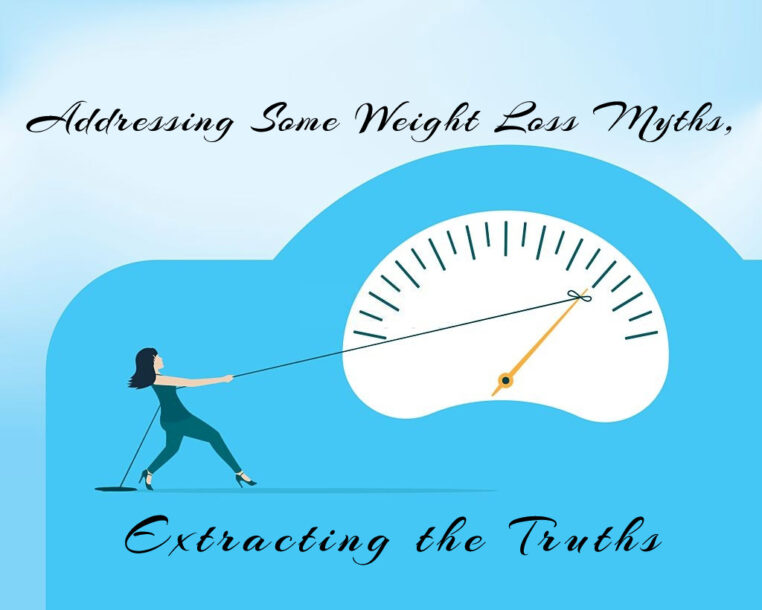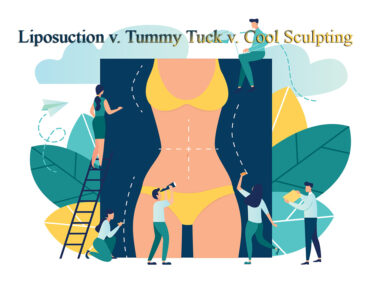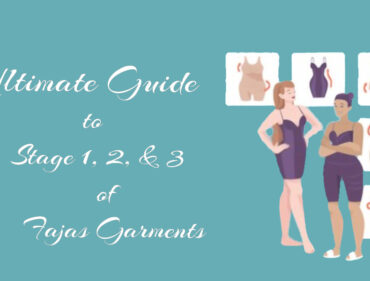Addressing Some Weight Loss Myths, Extracting the Truths
Losing weight can take a long time. It’s a journey that involves many processes because weight tends to fluctuate by small amounts. While some days are good days, on other days, you may gain a little bit more weight when you don’t expect too. This is not a cause for concern, though new use It’s normal for body weight to fluctuate up and down by a few pounds.
In the process of losing weight, you will hear the information being tossed left and right. Just as myths exist about other facets of life, it does for weight loss and body maintenance too. Because there is a lot of information out there, it can be difficult to sift the truth from the shaft and stick to a right, healthy lifestyle. It’s important to carefully diffuse advice and information and pick the best that suits what your body needs.
To cut through the confusion, below are 7 common misconceptions about weight loss and dieting, and the truth about them.
Let’s jump right into extracting the truth from these weight loss myths.
Table of Contents
ToggleWeight Loss Myth #1 All calories are equal
Yes, the calorie is a measurement of energy and all calories have the same energy content. This doesn’t mean, however, that all calorie sources have the same effects on your weight. It doesn’t!
Let’s try to explain it: Different foods go through different metabolic pathways and can have extremely different effects on the hormones that regulate your body weight.
For example, carb or fat calorie count will not be the same as a protein-calorie count.
In essence, paying attention only to particular calories ignores the metabolic effects of each calorie. In actual fact, the source of the calorie changes how you digest it and how energy is retrieved from it.
Myth #2 Skipping the Egg yolk Will Help You lose weight
While it’s true that egg whites are lower in calories than their yellow counterparts, they shouldn’t be entirely discarded from one’s diet. In fact, cutting egg yolk off your diet is a bad idea, because you’ll be missing some of the important fat-fighting nutrients such as choline.
Due to the presence of high-cholesterol, people often discard egg yolk considering it fattening and eat only the white part. One egg has around 186 milligrams of cholesterol and while it is true that egg yolks contain high-cholesterol, it is not as bad as it is made to seem. In fact, our body needs cholesterol to make testosterone, which helps to increase energy level and build muscles.
What you can do however if you’re counting calories, is to eat one yolk per every 2 to 3 eggs you consume.
Weight Loss Myth #3: Cutting fat from your diet helps you lose weight.
Avoiding fat doesn’t lead to weight loss. Know this and know peace! In fact, it often leads to weight gain. The latest research has found that foods containing healthy fat don’t make you add weight — they can actually speed up your metabolism and help you lose some fat.
People who cut fats from their diet tend to replace those calories with added sugar and refined grains and what this does is hijack your metabolism, drive inflammation, spike insulin and pack on the belly fat leading to a vicious cycle of more sugar cravings and loss of willpower.
To lose weight, feel full after eating and reduce your inflammation levels, eat healthy fats (avocado, olive oil, ground flax seeds, walnuts, and some kinds of fish)
Myth #4: Carbs are bad for you
Just like fat, carbohydrates are an important part of a healthy diet. When eaten in moderation, carbs provide the body with its main source of energy as well as regulate the digestive tract.
It’s important to note that there are different types of carbs. Let’s break it down.
Simple and complex: Simple carbs include things like processed foods, and they can raise your blood sugar and cause weight gain if you eat too much of them.
Complex carbs: These are found in nutritious foods like whole-grain bread, beans, oats, and specific vegetables. This kind of carbs can actually help regulate your blood sugar levels.
Myth #5: Eating at night will make you gain weight.
While some people are okay with eating more than a few hours before bed, for many people it’s a real struggle because they get hungry. They often attempt to have their last meal early in the evening but end up snacking and eating stealthily because they’re trying not to break their diet.
A lot of weight gain issues depend on what you’re eating and not just on what time it’s eaten. The truth however is that Late-night eating has been linked to excess calorie intake and poorer food choices. But, if you’re eating healthy, well-balanced foods later at night, you will be alright.
Myth #6: If you want to lose weight, you’ll have to go hungry.
A lot of people think that losing weight means skipping meals and going hungry all day. But that just will only make you frustrated, irritable, and in the long run, eat much more than you should when you can’t take it anymore.
The first rule of dieting is no skipping meals! Skipping meals makes your body try to hold onto fuel more efficiently by slowing down your metabolism, and often triggers overeating.
Weight Loss Myth #7: To lose weight you only need to eat less and exercise more
While it’s true that people who lose weight successfully tend to change their eating habits and increase their exercise, it isn’t always like that. Other factors, like genetics, environment, emotional and mental status and food types a person digests will also contribute.
We will always reiterate this- It takes time to lose weight, and it’s important to keep motivating yourself throughout the journey. One way is to find more reasons to be healthy. Remind yourself of all the benefits of exercise, including increased energy, better moods, and an improved night’s sleep, just to name a few.
So which weight loss myth have you believed for long but have now found out it’s just what it is- a myth! Let’s have a chat in the comment section.




